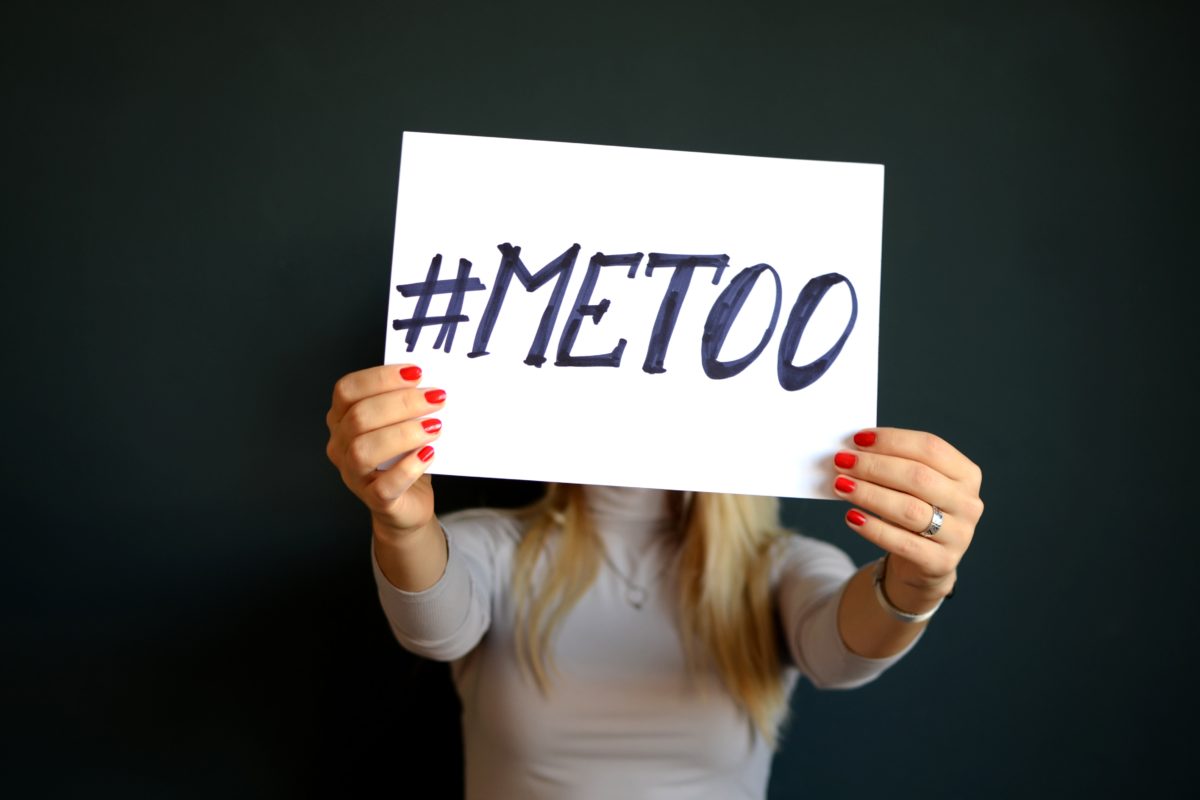The Poetry of #MeToo: Powerful Poets Speak Out
* Trigger Warning: This article discusses sexual assault and sexual harassment. *
The #MeToo movement, founded by activist and TIME’s 2017 Person of the Year Tarana Burke, has spoken truth to power by confronting predatory men and opening secrets of sexual assault, harassment, and inequality in industries from film to fast food. The idea is simple, yet courageous and revolutionary: What if every woman who had been sexually harassed or assaulted declared “me too,” challenging a culture of silence?
It’s estimated that more than 80 percent of women have been sexually harassed or assaulted, meaning that there are numerous voices to listen to, learn from, and affirm (as well as voices that aren’t yet ready to share). Since poetry holds a long tradition of bold truth-telling, and because research reveals that writing can be healing, literature can be a great place to start learning and speaking out.
Read: “Letter to My Blackout” by Maria Hummel
According to Hummel’s recent reflection on The Poetry Magazine Podcast, the poem “Letter to My Blackout” is a rumination on how Brett Kavanaugh’s confirmation to the Supreme Court triggered past memories of sexual violence. It uses the form of a villanelle—where several lines reoccur throughout each stanza—to show how survivors relive trauma.
Hummel’s poem does the important work of showing just how commonplace assault can be. The poem opens at a party that has become sinister: “Dear sip, dear shotgun, dear pound: / beneath the house, the kegs roll in; the party flips its switches down.” It also pushes back against assumptions about who society considers an attacker, with Hummel emphasizing, “He could be anyone, and he abounds.” With this poem, Hummel characterizes a typical experience, calling readers to recognize and speak out when similar events have happened to them.
Make a Change: One way for more leaders in government to understand this complex, personal issue (and the laws surrounding it!) lies in reaching gender parity in government. Donate to or get involved with She Should Run to learn more about how to fracture the glass ceiling.
Read: “What We Know About Men” by Isobel O’Hare
These six erasure poems, which also appear in O’Hare’s book, All This Can Be Yours, take the apologies of famous men accused of sexual misconduct and transform them into brutal, poignant truths. For example, O’Hare turns Harvey Weinstein’s six-paragraph apology statement in The New York Times to this searing poem, all through the power of black ink: “I came of age in a / culture / of / demons / I / respect / more / than / women.”
With these erasures, which also include “revised” statements by Kevin Spacey and Louis C.K., O’Hare refuses to let remorse triumph over justice. She also quite literally shows that it’s possible for survivors and their allies to reclaim their narratives.
Make a Change: In response to the Hollywood emissions that O’Hare writes about, more than 300 women in the entertainment industry founded TIME’S UP, an organization that advocates for stricter policies surrounding sexual misconduct, as well as a legal defense fund. The TIME’S UP website allows people to share their own stories, donate to the cause, or purchase some awesome ally swag.
Read: “Men Follow Me”
Like Hummel’s poem, Safia Elhillo’s “Men Follow Me” shows the repetitive nature of this issue. Sexual harassment is even more common than sexual assault, and Elhillo’s poem breaks down the ways in which it manifests in women’s daily lives, including online, on public transporation, and on the street.
Elhillo creates an impactful refrain out of these experiences, writing, “men follow me / on instagram / on twitter / home from the subway station / through my front door / over the years.” The fear and exasperation captured in the poem work as an urgent call for women to be free and safe in public spaces.
Make a Change: The Stop Street Harassment organization has many online resources, as well as a hotline for those affected. They also host and promote International Anti-Street Harassment Week each April, inspiring people from 41 countries and 6 continents to write and draw messages against street harassment on sidewalks across the world. Many local women’s organizations take part in this event, so contact yours for more information.




